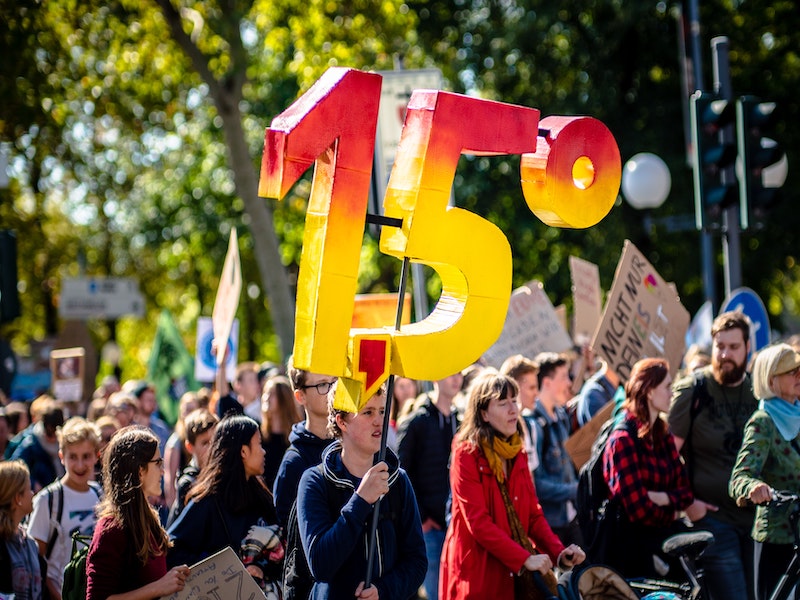Increasing greenhouse gas emissions are intertwined with economic growth
The United Nations Framework Convention on Climate Change (UNFCCC), was established in 1994 with the goal of preventing “dangerous” human interference with the climate system. Since its formation, the member countries of the Convention have met at a Climate Change Conference (COP), held every year since 1995. Every COP meeting has followed a similar pattern. They begin with optimism that this year will be the year the tide changes, and we begin seeing commitments that lead to aggressive reductions in greenhouse gas emissions. Each year they end with frustration that the tide continues to flow the same way; emissions continue to increase, and the climate crisis continues getting worse. COP27 will be no different because the focus of the COP is entirely wrong.
COP21 is a case in point of the problem at hand. It was at COP 21 that the 196 member countries agreed to the Paris Agreement — a legally binding climate deal that brought every nation into a common cause “to combat climate change and adapt to its effects.” It was seen as a landmark moment. Finally, we would begin seeing dramatic decreases in emissions.
To reduce the worst impacts of the climate crisis, it’s argued we must achieve net zero by 2050. To do so would involve greenhouse gas emissions peaking, well, ideally, yesterday. The UNFCCC uses nationally Determined Contributions to determine whether the world will reach net zero by 2050. Based on current NDCs, we’re way off the mark, with the world on track for 2.7 °C warming by 2100. And that’s a best-case scenario. The number of countries pledging to reach net-zero emissions by mid-century or soon after may be growing, but so do emissions. In 2021, global CO2 emissions reached 36.3 billion tonnes, their highest level in history.
So why is it that emissions continue increasing when so much effort is being placed into decarbonising the world economy? Well, because emissions aren’t actually a problem in and of themselves. They are an undesired outcome of economic activity. The cause of emissions is economic growth. Capitalism is an economic system that is predicated on never-ending growth because to continue to create surplus value for capitalists, and their shareholders involves the over-production and over-consumption of goods and services.
What this translates into is a larger economy, but obviously, what feeds that economy is the real natural world. The economy has now become so large that we are now in a state of ecological overshoot. Overshoot is where our demands on the natural world exceed its regenerative capacity. It’s not as if we’ve overshot by a little bit; we’d need 1.7 Earths to make our consumption levels sustainable. Even with such an enormous economy, we’re still unable to meet the needs of each person. There are still 2.3 billion people, or 29.3% of the human population, living in food insecurity. 700 million people still don’t have access to electricity. A third of the world’s population still uses biomass to cook. Chronic poverty is still rampant — the solution — is more economic growth, of course.
Growth will help stimulate developing economies; more economic activity creates a rising tide that raises all boats. In other words, more wealth leads to higher incomes for all, which then allows the poorest with more disposable income to consume more. But without the richest reducing consumption levels, all that will happen if more people escape poverty is that we’ll continue to increase overshoot. Increasing overshoot translates into more emissions, more waste, and more habitat destruction. In other words, the development path we’re locked into will only make the climate crisis worse because never-ending economic growth is intertwined with increasing environmental impacts. In short, capitalism is unsustainable by design.
At present, COP meetings are reductionist. The laser is on emissions without questioning the underlying causes of those emissions. Without an agenda that revolves around questioning growth and seeking to envisage a sustainable society underpinned by a post-growth economy, it’s not entirely clear how COP meetings will ever change the dynamic and create the impetus and momentum that will drive reductions in carbon emissions. So COP27, which will involve more of the same, won’t change the current dynamic. If insanity is doing the same thing over and over and expecting a different result, then COPs certainly fit the definition.
There are obvious reasons why participants of COP27 will ignore the elephant in the room. Governments are institutions that gain their legitimacy by maintaining the status quo. They’re hardly going to meet and begin questioning the very rules of the game they are a product of because by doing so, they will instantly delegitimize themselves. To question growth would be to question the foundations of society. It would be like questioning the belief in God.
The bottom line is that as long as growth and a capitalist system remain unquestioned, the climate crisis will get worse. It’s for that fact that COP meetings serve little purpose other than to create an illusion that countries are prioritising the climate crisis when the reality is that, by its nature, there are an inherent contradiction underlying efforts to decarbonise economies. So long as growth remains unquestioned, we’ll continue to see plenty of political and financial leaders with their heads buried in the sand, gladly saying all the right things. All the while, the climate crisis will continue getting worse, and we’ll continue on a path toward collapse.




No mention of inequality?